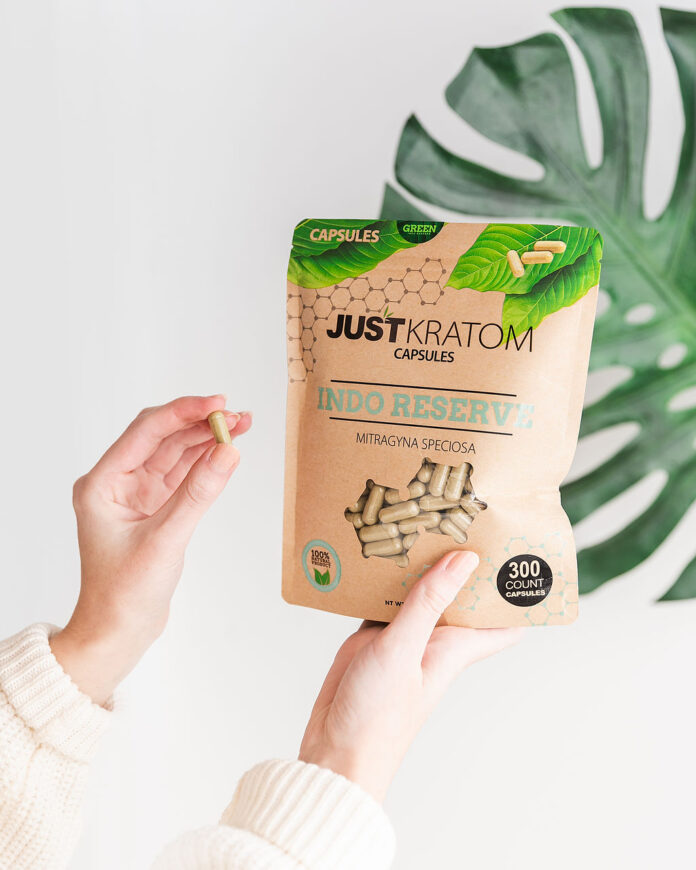Combining Kratom Capsules with Adaptogens
Exploring natural wellness solutions often leads to combining various substances to enhance their effects. One increasingly popular approach involves pairing kratom capsules with adaptogens, a class of herbs known for their ability to help the body adapt to stress and promote overall well-being.
Adaptogenic Herbs for Stress Reduction
Adaptogenic herbs work by helping the body regulate its response to stress, whether physical, emotional, or environmental. Common examples include ashwagandha, rhodiola, and holy basil. These herbs are believed to support adrenal health, balance cortisol levels, and improve energy levels, making them a valuable addition to those seeking natural stress management.
When combined with kratom capsules, adaptogens can potentially amplify the benefits for individuals managing stress, anxiety, or fatigue. Kratom is known for its mood-boosting effects and potential pain-relieving properties, while adaptogens can further support the body’s resilience against stressors.
However, it’s crucial to approach this combination with caution and consult with a healthcare professional before incorporating both kratom and adaptogens into your wellness regimen. Individual responses to these substances can vary widely, and potential interactions need to be carefully considered.
Ashwagandha and Kratom Synergistic Effects
Ashwagandha is a popular adaptogen that has gained significant attention for its potential benefits in managing stress, anxiety, and sleep issues. When combined with kratom capsules, ashwagandha may enhance the mood-boosting and relaxing effects of kratom, promoting a sense of calmness and well-being.
The synergistic effect of these two substances might arise from their complementary mechanisms. Kratom is believed to interact with opioid receptors in the brain, contributing to its pain-relieving and euphoric properties. Ashwagandha, on the other hand, works by modulating the hypothalamic-pituitary-adrenal (HPA) axis, which regulates the body’s stress response.
By combining these two substances, individuals may experience a more pronounced reduction in stress levels and an overall improvement in their mental and emotional well-being.
Rhodiola Rosea and Improved Energy Levels
Exploring natural wellness solutions often leads to combining various substances to enhance their effects. One increasingly popular approach involves pairing kratom capsules with adaptogens, a class of herbs known for their ability to help the body adapt to stress and promote overall well-being.
Adaptogenic herbs work by helping the body regulate its response to stress, whether physical, emotional, or environmental. Common examples include ashwagandha, rhodiola, and holy basil. These herbs are believed to support adrenal health, balance cortisol levels, and improve energy levels, making them a valuable addition to those seeking natural stress management.
When combined with kratom capsules, adaptogens can potentially amplify the benefits for individuals managing stress, anxiety, or fatigue. Kratom is known for its mood-boosting effects and potential pain-relieving properties, while adaptogens can further support the body’s resilience against stressors.
However, it’s crucial to approach this combination with caution and consult with a healthcare professional before incorporating both kratom and adaptogens into your wellness regimen. Individual responses to these substances can vary widely, and potential interactions need to be carefully considered.
Ashwagandha is a popular adaptogen that has gained significant attention for its potential benefits in managing stress, anxiety, and sleep issues. When combined with kratom capsules, ashwagandha may enhance the mood-boosting and relaxing effects of kratom, promoting a sense of calmness and well-being.
The synergistic effect of these two substances might arise from their complementary mechanisms. Kratom is believed to interact with opioid receptors in the brain, contributing to its pain-relieving and euphoric properties. Ashwagandha, on the other hand, works by modulating the hypothalamic-pituitary-adrenal (HPA) axis, which regulates the body’s stress response.
By combining these two substances, individuals may experience a more pronounced reduction in stress levels and an overall improvement in their mental and emotional well-being.
- Consider starting with low doses of both kratom and ashwagandha to assess your tolerance and individual response.
- Monitor for any adverse effects or interactions, and consult with your healthcare provider if you experience any concerns.

Boosting Kratom’s Benefits with Nootropics
Combining kratom capsules with carefully selected supplements can potentially enhance their therapeutic benefits. Adaptogens, a class of herbs known for their stress-modulating properties, are increasingly popular additions to kratom regimens.
Cognitive Enhancement with L-Theanine
Exploring natural wellness solutions often leads to combining various substances to enhance their effects. One increasingly popular approach involves pairing kratom capsules with nootropics, substances that aim to improve cognitive function and mental performance.
L-theanine, an amino acid found in tea leaves, is a notable nootropic that complements kratom well. L-theanine promotes relaxation and focus, counteracting potential jitters or anxiety sometimes associated with kratom.
The synergistic effect of kratom and L-theanine can create a balanced state of alertness and calmness. Kratom’s mood-boosting properties can be enhanced by L-theanine’s calming influence, leading to improved concentration and cognitive clarity.
When combining kratom with L-theanine, it’s essential to start with low doses and gradually increase them as needed, paying attention to individual responses. Consulting with a healthcare professional before incorporating these substances into your routine is always advisable.
Racetams and Memory Support
Exploring natural wellness solutions often leads to combining various substances to enhance their effects. One increasingly popular approach involves pairing kratom capsules with nootropics, substances that aim to improve cognitive function and mental performance.
Racetams, a class of synthetic nootropics, have gained attention for their potential to boost memory, learning, and overall brain function. While research on racetams is ongoing, some studies suggest they may enhance cognitive processes by influencing neurotransmitters involved in learning and memory.
Combining kratom with racetams could potentially amplify cognitive benefits. Kratom’s mood-boosting effects might create a more conducive environment for mental clarity and focus, while racetams could further enhance memory consolidation and learning abilities.
However, it’s crucial to approach this combination with caution and consult with a healthcare professional before incorporating both kratom and racetams into your wellness regimen.
- Start with low doses of both kratom and the chosen racetam to assess individual tolerance and potential interactions.
- Monitor for any adverse effects or changes in cognitive function, and adjust dosages accordingly.
- Remember that everyone responds differently to these substances, so personalized approaches are essential.
Choline for Focus and Attention
Exploring natural wellness solutions often leads to combining various substances to enhance their effects. One increasingly popular approach involves pairing kratom capsules with nootropics, substances that aim to improve cognitive function and mental performance.
Choline, a nutrient essential for brain health, is a notable nootropic that complements kratom well. Choline plays a crucial role in the production of acetylcholine, a neurotransmitter involved in memory, learning, and attention.
Combining kratom with choline may enhance focus and cognitive clarity. Kratom’s mood-boosting properties could create a more favorable environment for optimal mental function, while choline can support acetylcholine levels, aiding in concentration and information processing.
When incorporating choline into your regimen alongside kratom, it’s advisable to start with moderate doses and gradually increase them as needed. Individual responses to these substances can vary, so monitoring for any potential side effects or changes in cognitive function is essential.
Enhancing the Physical Effects of Kratom
Enhancing the physical effects of kratom often involves exploring complementary natural substances. Adaptogens, a group of herbs known for their ability to help the body manage stress and promote well-being, have gained popularity as potential enhancers of kratom’s effects.
Magnesium for Muscle Relaxation
Magnesium is a mineral that plays a crucial role in muscle function and relaxation. It helps regulate muscle contractions and reduce cramping. Combining magnesium with kratom may enhance the analgesic and relaxing effects of kratom, potentially leading to improved muscle recovery and pain management.
There are various forms of magnesium supplements available, such as magnesium citrate, glycinate, and oxide. Each form has different absorption rates and potential side effects. It’s important to choose a form that suits your needs and consult with a healthcare professional for guidance on dosage and appropriate usage.
Magnesium can be taken orally in supplement form or through dietary sources such as leafy green vegetables, nuts, and seeds. When incorporating magnesium into your routine alongside kratom, start with low doses and gradually increase them as needed to assess tolerance and individual response.

CBD Oil for Pain Management
Exploring natural wellness solutions often leads to combining various substances to enhance their effects. One increasingly popular approach involves pairing kratom capsules with CBD oil, a non-psychoactive compound derived from hemp that has gained recognition for its potential therapeutic benefits.
CBD is known for its analgesic and anti-inflammatory properties, which may complement kratom’s pain-relieving effects. Combining these two substances could potentially provide a more comprehensive approach to managing pain and discomfort.
While both kratom and CBD offer potential benefits, it’s crucial to approach this combination with caution. Individual responses to these substances can vary, and potential interactions need careful consideration. Consulting with a healthcare professional before incorporating both kratom and CBD into your wellness regimen is essential.
Start with low doses of both kratom and CBD and gradually increase them as needed to assess individual tolerance and any potential side effects.
Turmeric and Anti-Inflammatory Properties
Enhancing the physical effects of kratom often involves exploring complementary natural substances. One such option is turmeric, a spice with potent anti-inflammatory properties.
Turmeric’s active compound, curcumin, has been studied for its ability to reduce inflammation throughout the body. Combining turmeric with kratom may amplify their synergistic effects on pain management and overall well-being.
You can incorporate turmeric into your routine by consuming it in food or taking supplements. Always consult with a healthcare professional before combining turmeric with kratom, as they may interact with certain medications or have individual side effects.
- Xela Rederm Skin Booster Treatments Near Ripley, Surrey - January 20, 2026
- Xela Rederm Skin Booster Treatments Near Compton, Surrey - January 17, 2026
- Why Vista Edge Vape Is A Game-Changer In The Portable Vaping Market - January 14, 2026
